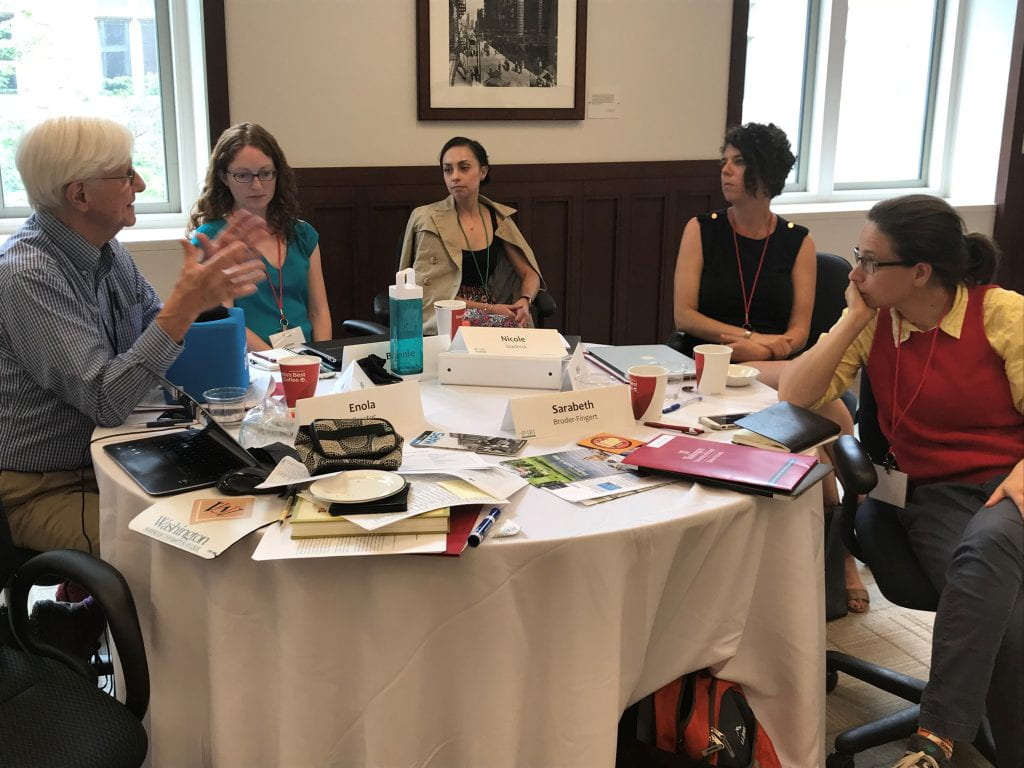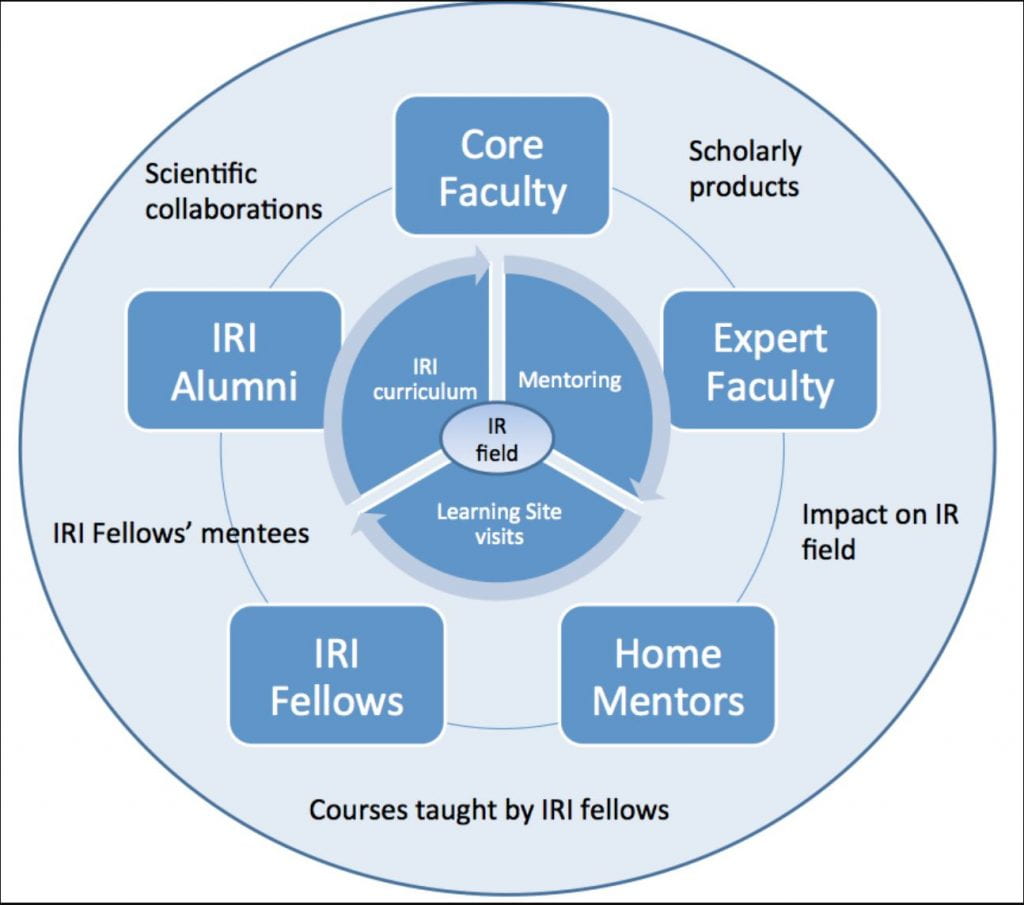
What is the Implementation Research Institute?
Implementation research is the study of processes for integrating empirically supported treatments (ESTs) into usual care, and holds high promise for reducing the gap from treatment discovery to community practice. The IRI is a unique interdisciplinary training program that will help you launch a research career in implementation science. You can also learn more about us here.
Only 40-50% of people with mental disorders receive any treatment and of those receiving treatment, a fraction receive what could be considered “quality” treatment.
IRI Participants will:
- Join a learning collaborative of implementation researchers for two years.
- Spend one week each summer at the Center for Mental Health Services Research (CMHSR) at Washington University in St. Louis. (Travel funds provided.)
- Receive individualized mentoring with an expert implementation researcher.
- Shape a research agenda and prepare a competitive grant proposal.
Specific aims of IRI:
- To develop a mentoring network of Faculty and Fellows who will advance the science and lead the field of mental health implementation research.
- To evaluate outcomes of the IRI mentoring network, inform continued improvement to training, and derive new knowledge about the role of mentoring networks in accelerating collaboration, scholarly productivity, and research training.
- To extend training benefits to the broader field by disseminating lessons learned and developing sustainable mentoring networks.
The IRI Process

Who should apply? We invite applications from ambitious Ph.D. or M.D. investigators, with demonstrated experience and enthusiasm in the study of mental health services, who wish to conduct groundbreaking research in implementation science. Apply here.